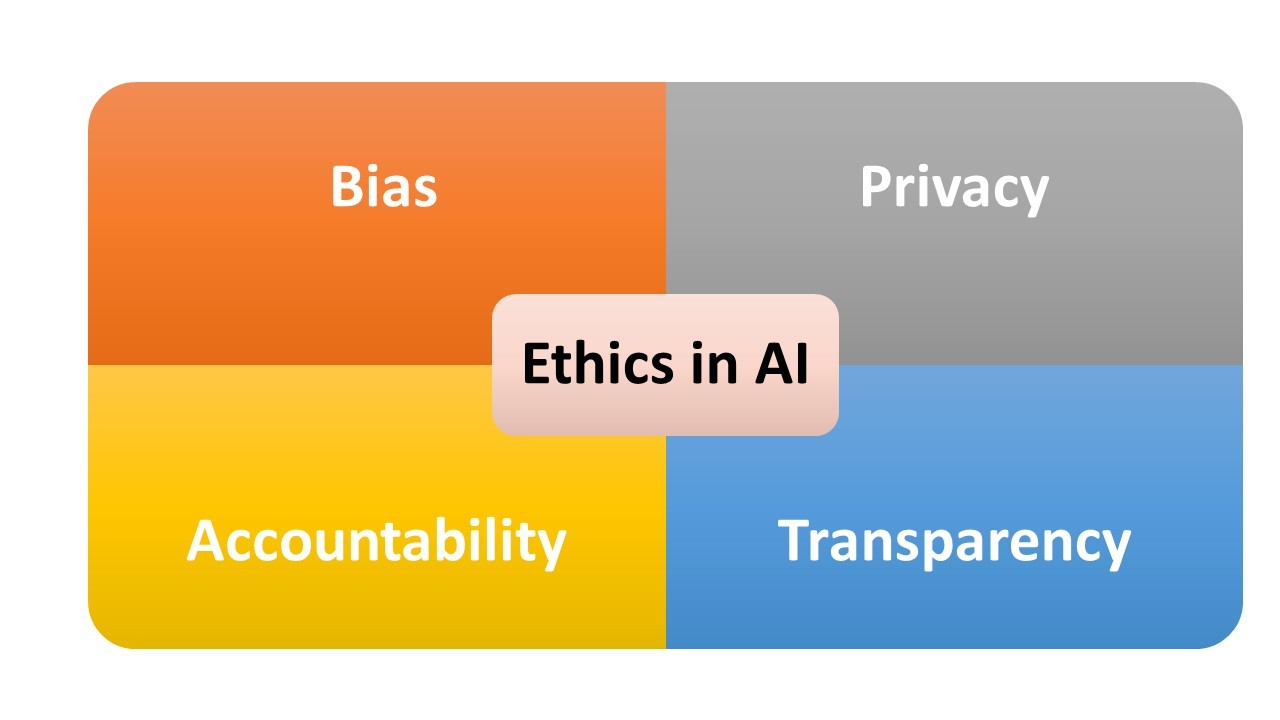Comments
- No comments found

Artificial intelligence (AI) is transforming our world in countless ways, from healthcare to education, business to cybersecurity.
While the potential benefits of AI are vast, there are also significant ethical considerations that must be taken into account. As intelligent machines become more prevalent in our society, it is crucial to consider the ethical implications of their use. In this article, we will explore some of the key ethical considerations in AI, including bias, privacy, accountability, and transparency.

One of the most significant ethical considerations in AI is bias. Bias can occur in AI systems when the data used to train them is biased or when the algorithms used to make decisions are biased. For example, facial recognition systems have been shown to be less accurate in identifying people with darker skin tones. This is because the data used to train these systems was primarily made up of images of lighter-skinned individuals. As a result, the system is more likely to misidentify someone with darker skin.
Bias in AI can have serious consequences, particularly in areas like healthcare and criminal justice. For example, if an AI system is biased against certain groups of people, it could lead to inaccurate diagnoses or unequal treatment. To address this issue, it is essential to ensure that the data used to train AI systems is diverse and representative of the entire population. Additionally, AI systems should be regularly audited to detect and correct any biases that may arise.
Another ethical consideration in AI is privacy. As AI systems become more prevalent, they are collecting and processing vast amounts of data about individuals. This data can include everything from personal information like names and addresses to sensitive information like medical records and financial information. It is essential to ensure that this data is protected and used only for its intended purpose.
One of the biggest risks to privacy in AI is the potential for data breaches. If an AI system is hacked or otherwise compromised, it could lead to the exposure of sensitive information. To mitigate this risk, it is crucial to ensure that AI systems are designed with security in mind. Additionally, individuals should be given control over their data and should be able to choose whether or not it is collected and used by AI systems.
As AI systems become more autonomous, it is crucial to consider the issue of accountability. If an AI system makes a mistake or causes harm, who is responsible? The answer to this question is not always clear, particularly in cases where AI systems are making decisions that have significant consequences. For example, if an autonomous vehicle causes an accident, who is responsible? The manufacturer of the vehicle? The owner of the vehicle? The AI system itself?
To address this issue, it is essential to establish clear lines of accountability for AI systems. This could involve requiring manufacturers to take responsibility for the actions of their AI systems or establishing regulations that hold AI systems to a certain standard of safety and performance.
Last but not least, transparency is another critical ethical consideration in AI. As AI systems become more prevalent in our society, it is essential to ensure that they are transparent and understandable. This means that individuals should be able to understand how AI systems are making decisions and why they are making those decisions. Additionally, AI systems should be auditable, meaning that their decision-making processes can be reviewed and evaluated.
Transparency is particularly important in areas like healthcare and criminal justice, where decisions made by AI systems can have significant consequences. For example, if an AI system is used to make medical diagnoses, patients should be able to understand how the system arrived at its diagnosis and why that diagnosis was made. Similarly, if an AI system is used to make decisions about criminal sentencing, defendants should be able to understand how the system arrived at its decision and why that decision was made.
Ethical considerations in AI are crucial for ensuring that the technology is developed and used in a responsible and beneficial manner. As AI continues to advance and become more integrated into our daily lives, it is essential that we prioritize ethical considerations such as transparency, accountability, fairness, privacy, and safety. By doing so, we can harness the full potential of AI while mitigating any negative consequences. It is important for all stakeholders, including governments, industry leaders, researchers, and the general public, to engage in ongoing discussions and collaboration to establish ethical guidelines and best practices for the development and use of AI. Ultimately, a human-centric approach to AI ethics can help to ensure that AI is aligned with our values and benefits society as a whole.
Ahmed Banafa is an expert in new tech with appearances on ABC, NBC , CBS, FOX TV and radio stations. He served as a professor, academic advisor and coordinator at well-known American universities and colleges. His researches are featured on Forbes, MIT Technology Review, ComputerWorld and Techonomy. He published over 100 articles about the internet of things, blockchain, artificial intelligence, cloud computing and big data. His research papers are used in many patents, numerous thesis and conferences. He is also a guest speaker at international technology conferences. He is the recipient of several awards, including Distinguished Tenured Staff Award, Instructor of the year and Certificate of Honor from the City and County of San Francisco. Ahmed studied cyber security at Harvard University. He is the author of the book: Secure and Smart Internet of Things Using Blockchain and AI.
Leave your comments
Post comment as a guest